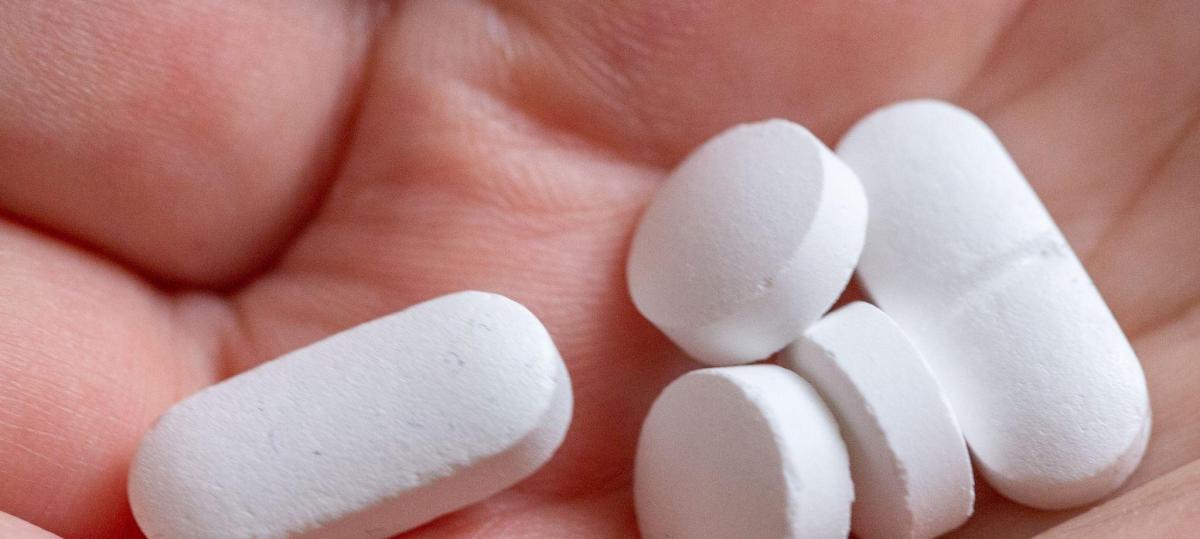When should you take vitamin D?

The days are getting shorter – and we automatically tired again. One reason for this can be vitamin D deficiency. If we don’t get enough sun rays, a lack of vital vitamins occurs. Dietary supplements can help – if they are taken properly.
Vitamin D: What does the sun vitamin do in the body?
Without Vitamin D Nothing works with our bones, because according to the Robert Koch Institute, it helps with the recording and processing of calcium. In addition, vitamin D puts you in a good mood: it plays an important role in regulating the brain messenger serotonin and the synthesis of noradrenaline. These messenger substances have an impact on our mood.
It regulates the body’s own hormone production, which ensures beautiful skin and hair. In addition, vitamin D is that too absorbed can be involved in further metabolic processes in the formation of proteins or the control of a variety of genes.
Vitamin D deficiency: when to take tablets?
As a precaution, consuming vitamin D is not necessary. The Federal Institute for Risk Assessment (BfR) even explicitly warns against the health risks of an independent intake of vitamin D preparations. The body forms 90 percent of Vitamins themselves through UV-B rays – Say: sunlight. However, the education varies strongly and depends on latitude, the year and time of day, weather, clothing, length of stay outdoors, the skin type and also the use of sunscreen. Normally five to 25 minutes are enough outdoors each day to boost production sufficiently. The body can also save the vitamin well, so that the reserves for winter are filled in in summer.
But sometimes it still comes to Vitamin D deficiency. This is indicated by symptoms such as sleep problems, depressive mood and limp.
Vitamin D deficiency: How do I take tablets and drops properly?
The RKI only speaks of a vitamin D deficiency if the vitamin lacks the body over a longer period of time and clinically relevant symptoms occur. Include:
- Li): Relative List-None (&> Li): PL- (1.2EM) (&> Li): Marker: Text- (0) (&> Li): Relative (&> Li): Before: Absolute (&> Li): Before: W-3 (&> Li): Before: H-3 (&> Li): Before: BG-fire (& Li): Before: LEFT-0 (&> Li): Before: Top- (8px) (&> Li): Before: Rounded-Full My-5 « >
- soft bones
- Muscle weakness
- fatigue
- rickets
Only when a doctor has determined a vitamin D deficiency and an improvement in the vitamin D status cannot be achieved by self-synthesis or diet, should the vitamin be taken in the form of tablets or drops. According to the German Nutrition Society the reference value for vitamin D intake is 20 micrograms per day if the body is missing. Important: The vitamin is fat -soluble and Tablets should therefore be taken for a rich meal. So it is better absorbed by the body. At what time, whether in the morning, noon or in the evening, it doesn’t matter. A routine, such as dinner, helps that the tablet will not be forgotten.
drops can be taken regardless of meals because they have already been solved.
Is too much vitamin D unhealthy?
Yes, there is too much vitamin: Unwanted side effects can occur with regular overdose. Include them:
- Li): Relative List-None (&> Li): PL- (1.2EM) (&> Li): Marker: Text- (0) (&> Li): Relative (&> Li): Before: Absolute (&> Li): Before: W-3 (&> Li): Before: H-3 (&> Li): Before: BG-fire (& Li): Before: LEFT-0 (&> Li): Before: Top- (8px) (&> Li): Before: Rounded-Full My-5 « >
- nausea
- Lack of appetite
- Abdominal cramp
- Vomit
- Kidney damage
- Heart rhythm disorders
- unconsciousness
Experts and the European Food Safety Authority (EFSA) Warning of the overdose of vitamin d. The dosage is too high in many supplements. Overall, the following dose should not be exceeded:
- Li): Relative List-None (&> Li): PL- (1.2EM) (&> Li): Marker: Text- (0) (&> Li): Relative (&> Li): Before: Absolute (&> Li): Before: W-3 (&> Li): Before: H-3 (&> Li): Before: BG-fire (& Li): Before: LEFT-0 (&> Li): Before: Top- (8px) (&> Li): Before: Rounded-Full My-5 « >
- Adults and for children from the age of 11 should not eat more than 100 micrograms per day
- Children up to the age of 10 should have a maximum of 50 micrograms of vitamin D a day
The RKI recommends preparations with a daily dose of up to 20 micrograms.








